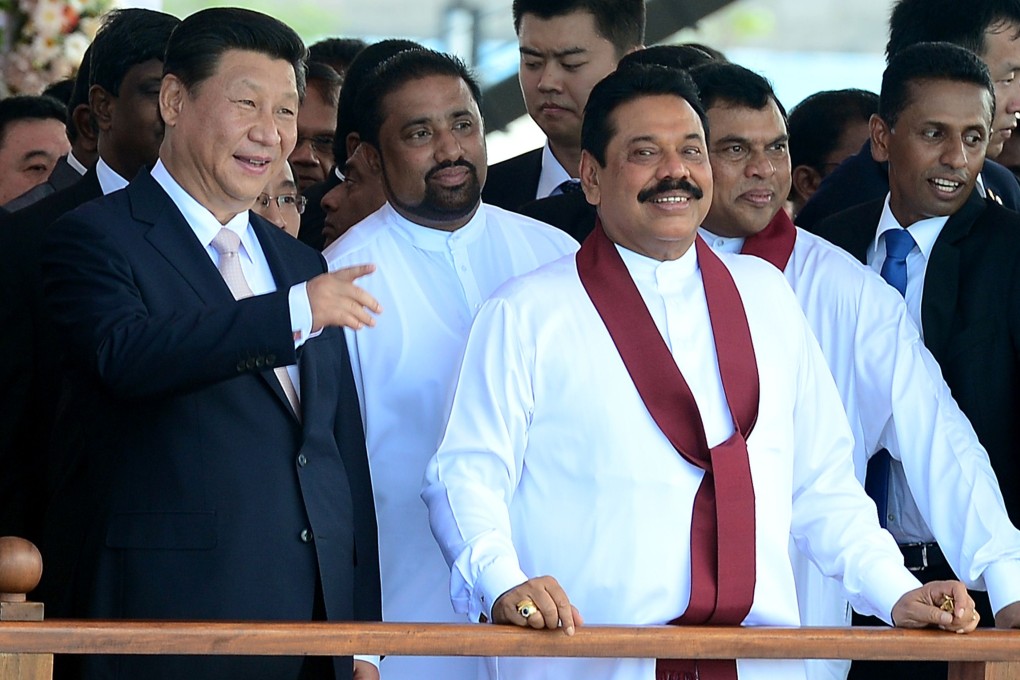Sri Lanka grapples with China's embrace
Brahma Chellaney says voters at elections this month will decide how far the strategically placed nation will come under Beijing's influence

Sri Lanka's parliamentary election this month promises to shape not only the country's political future, but also geopolitics in the wider Indian Ocean region, a global centre of trade and energy flows that accounts for half of the world's container traffic and 70 per cent of its petroleum shipments. The country's strategic importance has not been lost on China, which has, to the dismay of India and the US, been working hard to strengthen its presence in the Indian Ocean.
A leading contender in the election is former president Mahinda Rajapaksa, whose nine-year tenure was characterised by rising authoritarianism, nepotism and corruption.
During Rajapaksa's presidency, Sri Lanka's relationship with India deteriorated, owing partly to his government's failure to reconcile with the Tamil minority. But the country's relationship with China improved, with Chinese firms winning a series of lucrative contracts that would secure Sri Lanka's position as a key stop on China's "Maritime Silk Road".
The Maritime Silk Road is not just a trade initiative; it will also provide several access points for China's navy in the Indian Ocean region, through accords for refuelling, replenishment and maintenance.
Rajapaksa's successors, President Maithripala Sirisena and Prime Minister Ranil Wickremesinghe, seemed to recognise the risks that such collaboration with China entails. Indeed, during the presidential election campaign, Sirisena said that the contracts awarded to China by Rajapaksa are ensnaring Sri Lanka in a debt trap.
Once in power, Sirisena's government put on hold the construction by Chinese firms of a US$1.4 billion city on reclaimed land, and ordered investigations into environmental violations and corruption. Moreover, Sirisena rescinded some of the presidential powers Rajapaksa had added, as well as restoring the two-term limit. (This has strengthened the position of prime minister, for which Rajapaksa is vying.)